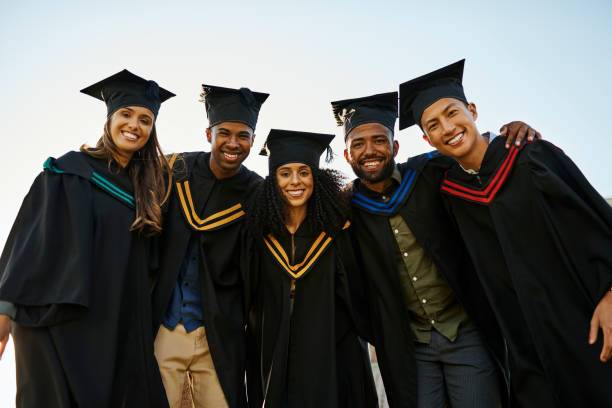
Introduction
In the dynamic landscape of education, the pursuit of a master’s degree has become more essential than ever. Masters scholarships play a pivotal role in making higher education accessible to deserving individuals. This article delves into the world of masters scholarships, exploring their types, application process, and the impact they have on individuals and society.
Types of Masters Scholarships
Scholarships come in various forms, each catering to different needs and criteria. Merit-based scholarships reward academic excellence, while need-based scholarships provide financial assistance to those facing economic challenges. Diversity scholarships promote inclusivity, and subject-specific scholarships support those pursuing particular fields of study.
Application Process
Securing a masters scholarship requires a strategic approach. Researching available scholarships, preparing necessary documents, crafting an outstanding personal statement, and securing compelling letters of recommendation are crucial steps in the application process.
Tips for Winning Scholarships
Standing out in a pool of applicants is challenging but not impossible. Highlighting academic achievements, showcasing leadership skills, and weaving a compelling personal narrative are essential tactics for increasing the chances of winning a masters scholarship.
Overcoming Common Challenges
The road to securing a scholarship is not without obstacles. Navigating the competitive landscape, dealing with rejection, and exploring alternative funding options are part of the journey. It’s essential to persevere and stay resilient.
Success Stories
Real-life success stories inspire and provide valuable insights. This section shares examples of students who successfully secured masters scholarships, offering lessons learned and tips for prospective applicants.
Impact of Masters Scholarships
Masters scholarships go beyond financial aid; they empower individuals to pursue advanced degrees, contribute to career advancement, and foster global academic excellence. The impact is profound, shaping the future of education and creating leaders in various fields.
Future Trends in Masters Scholarships
As technology continues to evolve, scholarship platforms are embracing innovations. Additionally, there is a growing emphasis on inclusivity and diversity in scholarship programs, ensuring opportunities are accessible to a broader range of individuals.
masters scholarships open doors to higher education, enabling individuals to realize their academic and professional aspirations. The journey may be challenging, but the rewards are transformative, contributing to personal growth and societal progress.
FAQs
- Are masters scholarships only based on academic merit? Masters scholarships come in various forms, including merit-based, need-based, and subject-specific scholarships. While academic merit is a common criterion, other factors are also considered.
- What should be included in a compelling personal statement for a scholarship application? A compelling personal statement should highlight academic achievements, leadership skills, and personal experiences that demonstrate the applicant’s suitability for the scholarship.
- How can I overcome the disappointment of a scholarship rejection? Dealing with rejection is challenging but normal. Use it as an opportunity for self-reflection, seek feedback if available, and consider alternative funding options.
- Can international students apply for masters scholarships? Yes, many masters scholarships are open to international students. It’s essential to carefully review eligibility criteria and application requirements.
- What is the significance of diversity scholarships? Diversity scholarships aim to promote inclusivity by supporting individuals from underrepresented backgrounds. They contribute to creating a more diverse and vibrant academic community.
To learn about new horizons of scholarships in Europe🌍 : click here
Exploring Technological Innovations in Scholarship Platforms
In recent years, technology has played a crucial role in reshaping the landscape of master’s scholarships. Traditional methods of scholarship application and selection are evolving, with the introduction of innovative platforms. These platforms leverage artificial intelligence and data analytics to match candidates with suitable scholarships, streamlining the application process.
Increasing Emphasis on Inclusivity and Diversity
The future of masters scholarships is marked by a growing emphasis on inclusivity and diversity. Scholarship providers are recognizing the importance of supporting individuals from underrepresented backgrounds, fostering a more inclusive academic environment. This shift reflects a commitment to equality and the recognition that diverse perspectives contribute to a richer learning experience.
the world of masters scholarships is dynamic and evolving. As technology continues to advance, scholarship platforms are becoming more sophisticated, making the application process more accessible and efficient. Moreover, the emphasis on inclusivity and diversity is a positive step towards creating equal opportunities for all aspiring scholars.
FAQs
- How can technology help in the scholarship application process? Technology, including artificial intelligence and data analytics, can streamline the application process by matching candidates with relevant scholarships based on their profiles and preferences.
- Are there scholarships specifically for underrepresented groups? Yes, many scholarships focus on promoting diversity and inclusivity by supporting individuals from underrepresented groups. These scholarships aim to create a more equitable educational landscape.
- What role do recommendation letters play in the scholarship application process? Recommendation letters provide insight into an applicant’s character, achievements, and potential. They offer a personalized perspective and can significantly influence the selection process.
- How can scholarship applicants stay updated on available opportunities? To stay informed, applicants should regularly check scholarship databases, subscribe to newsletters, and follow relevant organizations on social media. This ensures they don’t miss out on potential opportunities.
- Are there scholarships for non-traditional students returning to education? Yes, there are scholarships specifically designed for non-traditional students, including those who are returning to education after a hiatus. These scholarships acknowledge diverse educational journeys and experiences.
Unlocking Opportunities for Higher Education
Masters scholarships serve as key catalysts in unlocking opportunities for higher education. They bridge the financial gap that often hinders talented individuals from pursuing advanced degrees. The impact of these scholarships extends far beyond the individual, influencing communities and contributing to a more educated and skilled global workforce.
Empowering Individuals to Pursue Advanced Degrees
One of the primary benefits of masters scholarships is their role in empowering individuals to pursue advanced degrees. By alleviating financial burdens, these scholarships allow talented students to focus on their studies without the distraction of economic constraints. This empowerment results in a cohort of well-educated individuals ready to contribute to their fields and society.
Contributing to Career Advancement
Masters scholarships not only facilitate access to education but also contribute significantly to career advancement. Individuals who attain advanced degrees through these scholarships often have a competitive edge in the job market. The specialized knowledge gained during master’s programs enhances their skills, making them valuable assets to employers.
Fostering Global Academic Excellence
The influence of masters scholarships extends globally, fostering academic excellence on an international scale. As recipients of these scholarships contribute to research, innovation, and academic discourse, they play a vital role in elevating the standards of education worldwide. The exchange of ideas and collaboration among scholars from diverse backgrounds enriches the global academic landscape.
FAQs
- Can masters scholarships cover all educational expenses? While masters scholarships can cover tuition and, in some cases, living expenses, it’s essential to carefully review the terms and conditions of each scholarship. Some may cover specific costs, while others provide a lump sum.
- How do masters scholarships benefit society as a whole? Masters scholarships benefit society by producing highly educated individuals who contribute to research, innovation, and the workforce. This, in turn, elevates the overall educational and economic standards of communities.
- Are there scholarships specifically for research-based master’s programs? Yes, many scholarships are tailored for research-focused master’s programs, supporting individuals pursuing advanced studies with a strong emphasis on research and innovation.
- Do masters scholarships have age restrictions? The age eligibility for masters scholarships varies. While some scholarships are open to individuals of any age, others may have age restrictions. It’s crucial to check the specific criteria for each scholarship.
- How can individuals give back after benefiting from masters scholarships? Individuals who have benefited from masters scholarships can give back by mentoring aspiring scholars, participating in scholarship programs, or contributing to educational initiatives. This helps create a cycle of support for future generations.
If you are interested in scholarships in Canada 🍁 : click here.
Real-Life Examples of Scholarship Success

To truly understand the impact of master’s scholarships, let’s explore a few real-life success stories. These narratives showcase the diverse journeys of individuals who overcame challenges and achieved their academic dreams through the support of scholarships.
1. Sarah’s Journey: Overcoming Financial Barriers
Sarah, a passionate student with a deep interest in environmental science, faced significant financial barriers to pursue her master’s degree. Through diligent research, she discovered a specialized scholarship for environmental studies. With a well-crafted application, highlighting her commitment to sustainability, Sarah secured the scholarship, allowing her to contribute meaningfully to her field.
2. James’s Triumph: From Rejection to Resilience
James experienced initial setbacks with scholarship rejections, but he didn’t let that deter him. Leveraging feedback, he improved his application strategy, emphasizing his unique contributions to his chosen field. The persistence paid off when he secured a prestigious scholarship that not only funded his master’s program but also opened doors to a network of influential professionals.
Lessons Learned from Successful Applicants
These success stories offer valuable lessons for aspiring applicants. They underscore the importance of perseverance, tailored applications, and utilizing feedback. The journey to securing a masters scholarship may have its challenges, but the stories of individuals like Sarah and James prove that dedication and resilience can lead to transformative opportunities.
The Transformative Power of Masters Scholarships
These success stories highlight the transformative power of masters scholarships. Beyond financial assistance, these opportunities shape individuals into leaders and contributors to their respective fields. Aspiring scholars can draw inspiration from these narratives, realizing that with determination and strategic effort, they too can unlock the doors to advanced education.
FAQs
- How can applicants find specialized scholarships for their field of study? Applicants can explore scholarship databases, university websites, and professional organizations related to their field of study. These platforms often list specialized scholarships catering to specific academic disciplines.
- Is it common to face rejection when applying for masters scholarships? Rejection is a common part of the scholarship application process. It’s essential to view rejections as opportunities for growth, learn from feedback, and persist in the pursuit of suitable opportunities.
- Can applicants apply for multiple scholarships simultaneously? Yes, applicants can apply for multiple scholarships simultaneously, but it’s crucial to manage the application process efficiently. Tailoring applications to meet specific scholarship criteria is essential for success.
- Do scholarships cover expenses beyond tuition, such as research materials and conference attendance? Some scholarships may cover additional expenses like research materials and conference attendance, while others may focus primarily on tuition. Applicants should carefully review the scholarship details to understand the extent of coverage.
- How can scholarship recipients make the most of networking opportunities provided by scholarships? Scholarship recipients can maximize networking opportunities by actively participating in events, connecting with mentors and fellow scholars, and engaging in relevant professional communities. Building a strong network can contribute to future career success.
🎓✨ Unlock the doors to your educational dreams! 🚪 Click the link now for a chance at a school grant. 🌟click here
Innovations in Scholarship Accessibility
As technology continues to advance, innovations in scholarship accessibility are reshaping the landscape of higher education funding. Online platforms, mobile applications, and streamlined processes are enhancing the ease with which aspiring scholars can discover and apply for masters scholarships.
1. AI-Driven Matching Platforms
Cutting-edge platforms leverage artificial intelligence (AI) to match candidates with suitable scholarships. These systems analyze applicant profiles, academic achievements, and personal preferences to recommend scholarships aligned with individual goals. This not only simplifies the search process but also increases the likelihood of finding the right fit.
2. Mobile Applications for On-the-Go Access
Mobile applications dedicated to scholarship searches provide on-the-go access for busy students. With user-friendly interfaces and push notifications for new opportunities, these apps empower individuals to stay informed and apply for scholarships conveniently. The accessibility of information plays a crucial role in democratizing the application process.
3. Blockchain for Transparent Scholarship Distribution
Blockchain technology is being explored to enhance transparency in scholarship distribution. By utilizing blockchain for record-keeping, scholarship providers can ensure a tamper-resistant and transparent process. This innovation instills confidence in applicants regarding the fairness and integrity of the scholarship selection process.
The Future Landscape of Scholarship Opportunities
As we navigate the dynamic landscape of masters scholarships, these technological innovations signify a promising future. The convergence of AI, mobile applications, and blockchain not only makes scholarships more accessible but also contributes to a more efficient and equitable distribution of educational opportunities.
FAQs
- How does AI help in matching applicants with suitable scholarships? AI analyzes applicant profiles, academic achievements, and preferences to recommend scholarships that align with individual goals. This personalized matching process enhances the chances of finding scholarships that are a good fit.
- Are mobile applications safe for scholarship searches? Reputable scholarship apps prioritize security measures to protect user data. It’s essential for users to download applications from trusted sources and review privacy settings to ensure a safe experience.
- Can blockchain technology prevent fraud in scholarship distribution? Yes, blockchain’s tamper-resistant nature can help prevent fraud in scholarship distribution. By providing a transparent and unalterable record, it ensures the integrity of the scholarship selection process.
- How often are new scholarship opportunities added to online platforms? The frequency of new scholarship opportunities varies. Some platforms update their listings regularly, while others may add opportunities on a less frequent basis. Users should check platforms regularly for the latest opportunities.
- Are there specific scholarships for individuals pursuing non-traditional master’s programs? Yes, there are scholarships tailored for individuals pursuing non-traditional master’s programs. These may include interdisciplinary studies, emerging fields, or programs with unique characteristics. Applicants should explore specialized opportunities aligned with their chosen paths.

📚 Dive into a world of knowledge! 🤩 Tap the link to explore potential school grants and shape your future. 🌈click here
Three best master’s scholarships in Europe:
Erasmus Mundus Joint Master’s Degrees (EMJMDs)
Introduction
Erasmus Mundus Joint Master’s Degrees (EMJMDs) represent a prestigious and unique approach to higher education. Established by the European Commission, these programs aim to promote excellence in European education and foster international cooperation. This article delves into the distinctive features, benefits, and application process of Erasmus Mundus Joint Master’s Degrees.
Defining EMJMDs
Erasmus Mundus Joint Master’s Degrees are collaborative programs offered by a consortium of European universities. These programs bring together students and scholars from different parts of the world, fostering a multicultural and interdisciplinary learning environment. EMJMDs cover a wide array of disciplines, ranging from humanities to sciences and engineering.
Key Features of EMJMDs
- International Consortium: EMJMDs involve partnerships between multiple European universities, often spanning different countries. This consortium approach ensures a diverse academic experience.
- Multilingual Courses: Courses within EMJMDs are often delivered in multiple languages, reflecting the linguistic diversity of the participating institutions. This not only facilitates a global learning experience but also enhances language proficiency.
- Interdisciplinary Approach: EMJMDs often emphasize an interdisciplinary approach, encouraging students to explore connections between different fields of study. This holistic perspective prepares graduates for complex, real-world challenges.
Benefits of Pursuing an EMJMD
- Cultural Diversity: Students in EMJMDs have the opportunity to interact with peers, faculty, and professionals from various cultural backgrounds. This exposure enhances their cross-cultural communication skills and global perspective.
- Networking Opportunities: The international nature of EMJMDs provides students with extensive networking opportunities. Building connections with peers, professors, and professionals from around the world can be invaluable for future collaborations and career advancement.
- Quality Education: EMJMDs are designed to offer high-quality education by leveraging the expertise of multiple institutions. Students benefit from the collective knowledge, resources, and facilities provided by the consortium.
Application Process for EMJMDs
- Program Selection: Candidates should carefully review the list of available EMJMDs and choose a program aligned with their academic and career goals.
- Eligibility Criteria: Each EMJMD has specific eligibility criteria. Prospective students should ensure they meet the academic, linguistic, and any other requirements set by the consortium.
- Application Submission: The application process typically involves submitting an online application through the EMJMDs official platform. This may include academic transcripts, recommendation letters, and a statement of purpose.
- Selection Process: The selection process is competitive, considering academic merit, relevant experience, and the applicant’s motivation. Shortlisted candidates may be invited for interviews or additional assessments.
- Joint Degree Award: Successful candidates who complete the program requirements receive a joint degree from the participating institutions. This joint degree is recognized internationally, enhancing the graduates’ employability.
Erasmus Mundus Joint Master’s Degrees stand as a testament to the power of international collaboration in education. These programs not only provide students with a world-class academic experience but also contribute to the development of a globally competent and interconnected community of scholars.
FAQs
- Can non-European students apply for EMJMDs? Yes, EMJMDs are open to students from all over the world, making them truly international programs. Non-European students are encouraged to apply and contribute to the diverse learning environment.
- Are EMJMDs fully funded? Funding arrangements for EMJMDs vary. Some programs offer full scholarships covering tuition, living expenses, and travel, while others may provide partial funding. Applicants should check the specific details of each program.
- How many universities are typically involved in an EMJMD consortium? EMJMD consortia can involve two or more universities. The number of institutions varies depending on the program. Consortiums aim to bring together diverse expertise to enrich the learning experience.
- Can EMJMD graduates pursue further studies or research? Yes, EMJMD graduates often have opportunities to continue their academic journey, either through doctoral programs or research initiatives. The joint degree from prestigious European institutions enhances their prospects for advanced studies.
- What is the duration of an EMJMD? The duration of EMJMDs varies but is typically between one and two years. Students should check the specific duration of the program they are interested in during the application process.
🌟 Your academic journey begins here! 🏫 Don’t miss out, click for the school grant and ignite your learning adventure. 🔥click here
DAAD Master’s Scholarships in Germany
Introduction
The German Academic Exchange Service (DAAD) Master’s Scholarships stand as a beacon for international students seeking exceptional educational opportunities in Germany. Established by the DAAD, these scholarships aim to support outstanding individuals pursuing master’s degrees in various disciplines. This article explores the key aspects, benefits, and application process associated with DAAD Master’s Scholarships.
Understanding DAAD Master’s Scholarships
The DAAD Master’s Scholarships are merit-based awards offered to talented individuals worldwide who wish to pursue master’s degrees at German universities. These scholarships cover a diverse range of academic fields, ensuring inclusivity and accessibility for students with varying academic interests.
Key Features of DAAD Master’s Scholarships
- Open to International Students: DAAD Master’s Scholarships are open to applicants from all countries, providing a truly international and multicultural learning environment.
- Diverse Range of Disciplines: Whether in the fields of science, technology, humanities, or social sciences, DAAD Master’s Scholarships cater to a broad spectrum of academic disciplines.
- Financial Support: The scholarships provide financial support, including tuition fees, a monthly stipend, health insurance, and travel allowances. This comprehensive funding package aims to ease the financial burden for international students.
Benefits of Pursuing a DAAD Master’s Scholarship
- Quality Education in Germany: Germany is renowned for its high-quality education and cutting-edge research. DAAD Master’s Scholarships offer recipients the opportunity to experience this academic excellence firsthand.
- International Networking Opportunities: Studying in Germany under the DAAD Scholarship program exposes students to a diverse and international academic community. Networking with peers, professors, and professionals enhances their global perspective.
- Language Development: While many programs are offered in English, being in Germany provides an excellent opportunity for scholarship recipients to improve their proficiency in the German language, contributing to their cultural integration.
Application Process for DAAD Master’s Scholarships
- Program Selection: Candidates should carefully choose a master’s program in Germany that aligns with their academic and career goals. The DAAD scholarship database provides a list of eligible programs.
- Eligibility Check: Applicants must review and ensure they meet the specific eligibility criteria for the selected master’s program and the DAAD Master’s Scholarship.
- Application Submission: The application process involves submitting required documents, including academic transcripts, a CV, letters of recommendation, and a well-crafted statement of purpose. The application is typically submitted directly to the selected university.
- Selection Process: The selection process is highly competitive and considers academic excellence, the applicant’s motivation, and the potential for contribution to their field. Shortlisted candidates may be invited for interviews.
- Confirmation of DAAD Scholarship: Successful candidates receive confirmation of the DAAD Scholarship along with details about the financial support package.
Conclusion
DAAD Master’s Scholarships not only pave the way for academic excellence but also facilitate cultural exchange and international collaboration. For individuals aspiring to pursue a master’s degree in Germany, this scholarship program opens doors to a transformative educational experience.
FAQs
- Can DAAD Master’s Scholarships be applied for multiple master’s programs? Yes, applicants can apply for multiple master’s programs. However, it’s essential to review the specific guidelines for each program and ensure that all application requirements are met.
- What are the language requirements for DAAD Master’s Scholarships? While many programs are offered in English, language requirements may vary. It’s advisable for applicants to check the language proficiency requirements of the selected master’s program.
- Are there age restrictions for DAAD Master’s Scholarships? Generally, there are no specific age restrictions for DAAD Master’s Scholarships. However, applicants should review the eligibility criteria of the chosen master’s program for any age-related requirements.
- Can DAAD Master’s Scholarship recipients work part-time during their studies? DAAD Master’s Scholarship recipients are usually allowed to work part-time during their studies, as per German regulations. However, the specific terms may vary, and students should check the guidelines provided by their respective universities.
- What support does DAAD offer for cultural integration? DAAD provides various initiatives and support services to help international students integrate into German society. This includes language courses, cultural events, and orientation programs to facilitate a smooth transition into academic and social life in Germany.
🎉 Empower your future with the gift of education! 🎁 Click the link to apply for the school grant and watch your potential bloom. 🌼click here
Orange Knowledge Programme (OKP) Scholarships1. Masters Scholarships

Introduction
The Orange Knowledge Programme (OKP) Scholarships, funded by the Dutch Ministry of Foreign Affairs, are a transformative opportunity for individuals from eligible countries to pursue academic excellence and contribute to sustainable development. This article explores the distinctive features, benefits, and application process associated with the OKP Scholarships.
Understanding OKP Scholarships
The Orange Knowledge Programme aims to advance the development goals of participating countries by providing scholarships for short courses and master’s programs in the Netherlands. OKP Scholarships cover a wide range of fields and prioritize capacity building, knowledge exchange, and fostering long-term partnerships between Dutch institutions and organizations worldwide.
Key Features of OKP Scholarships
- Focus on Capacity Building: OKP Scholarships prioritize capacity building in key sectors such as agriculture, water management, health, and education. The goal is to empower individuals to contribute effectively to the development of their home countries.
- Tailored Training Programs: The scholarships support both short courses and master’s programs, ensuring a flexible approach that meets the specific needs of individual professionals and institutions.
- Global Collaboration: OKP promotes global collaboration by facilitating knowledge exchange between Dutch experts and scholars and participants from partner countries. This collaborative approach aims to address global challenges through shared expertise.
Benefits of Pursuing OKP Scholarships
- Holistic Financial Support: OKP Scholarships cover various expenses, including tuition fees, travel costs, accommodation, and living expenses. This comprehensive support enables recipients to focus on their studies without financial concerns.
- International Networking Opportunities: Participants in OKP programs benefit from exposure to a diverse international community, fostering valuable connections with professionals, academics, and experts from different parts of the world.
- Practical and Applicable Knowledge: OKP courses and programs are designed to provide practical, applicable knowledge that participants can directly implement in their respective fields upon returning to their home countries.
Application Process for OKP Scholarships
- Eligibility Check: Prospective applicants should carefully review the eligibility criteria outlined for each specific course or program on the official OKP Scholarship portal.
- Choose a Course or Program: Applicants should select a course or master’s program that aligns with their professional goals and contributes to the development priorities of their home country.
- Prepare Application Documents: The application process typically involves submitting documents such as academic transcripts, letters of motivation, letters of recommendation, and a detailed work plan outlining how the acquired knowledge will be applied.
- Online Application Submission: Applicants submit their applications through the OKP Scholarship online application system. It’s essential to adhere to the specified deadlines and provide accurate and complete information.
- Selection Process: The selection process is competitive and considers factors such as academic merit, relevance of the chosen course to development goals, and the applicant’s commitment to applying gained knowledge in their home country.
Conclusion
The Orange Knowledge Programme Scholarships stand as a testament to the Netherlands’ commitment to global development through education. By providing comprehensive support for individuals from partner countries, OKP Scholarships contribute significantly to building human capacity and fostering sustainable change.
FAQs
- Can individuals from any country apply for OKP Scholarships? OKP Scholarships are available to individuals from eligible partner countries. The list of eligible countries is determined by the Dutch Ministry of Foreign Affairs and may vary based on specific calls for applications.
- Are there specific priority sectors for OKP Scholarships? Yes, OKP Scholarships focus on key sectors such as agriculture, water management, health, and education. These priority sectors align with development goals, and applicants are encouraged to choose courses or programs that contribute to these areas.
- What is the duration of OKP short courses and master’s programs? The duration of OKP short courses varies, typically ranging from a few weeks to a few months. Master’s programs supported by OKP Scholarships generally have a duration of one to two years.
- Are English language proficiency tests required for OKP Scholarships? English language proficiency requirements vary by course or program. Some may require language proficiency tests (such as IELTS or TOEFL), while others may have different language assessment criteria. Applicants should check the specific requirements for their chosen course.
- How does OKP contribute to sustainable development in partner countries? OKP contributes to sustainable development by empowering individuals with the knowledge and skills needed in key sectors. The emphasis on practical, applicable knowledge ensures that participants can make meaningful contributions to the development priorities of their home countries after completing their studies in the Netherlands.





